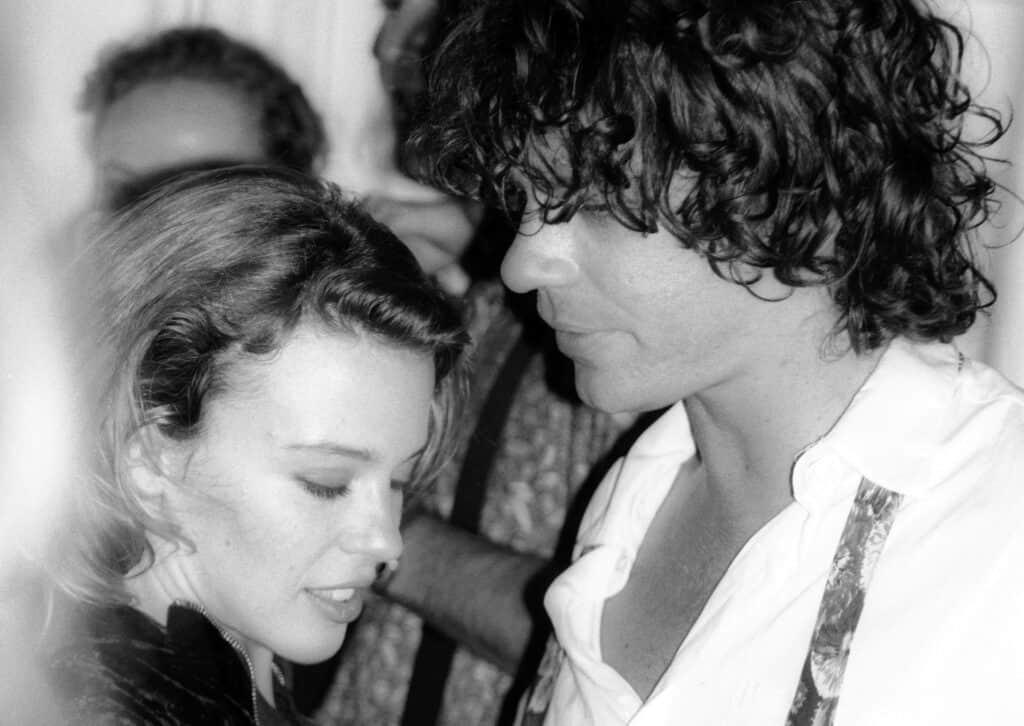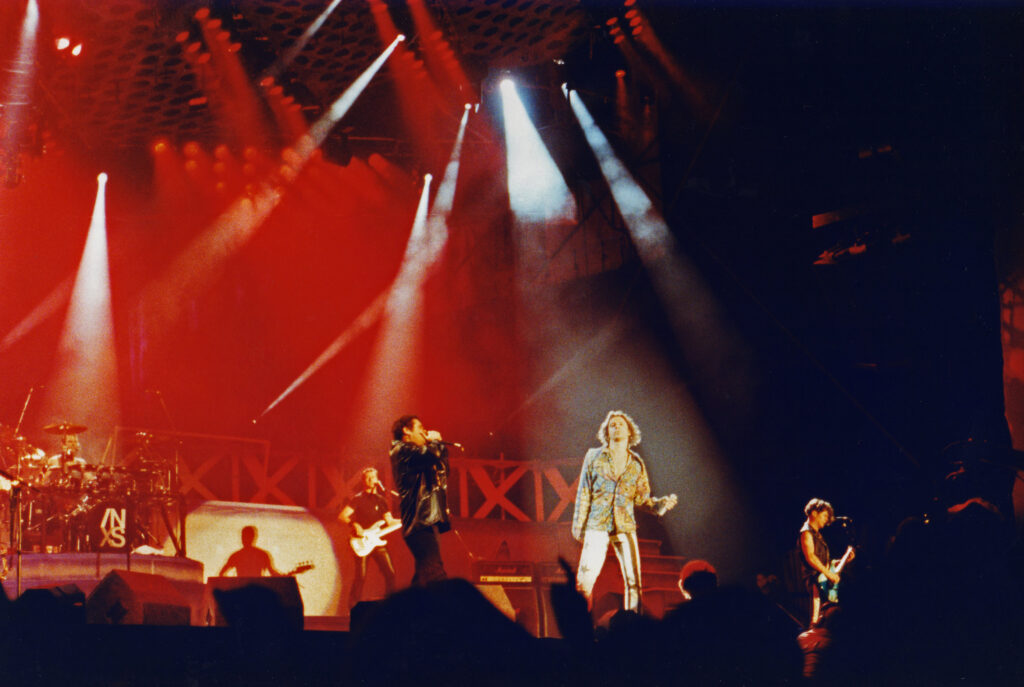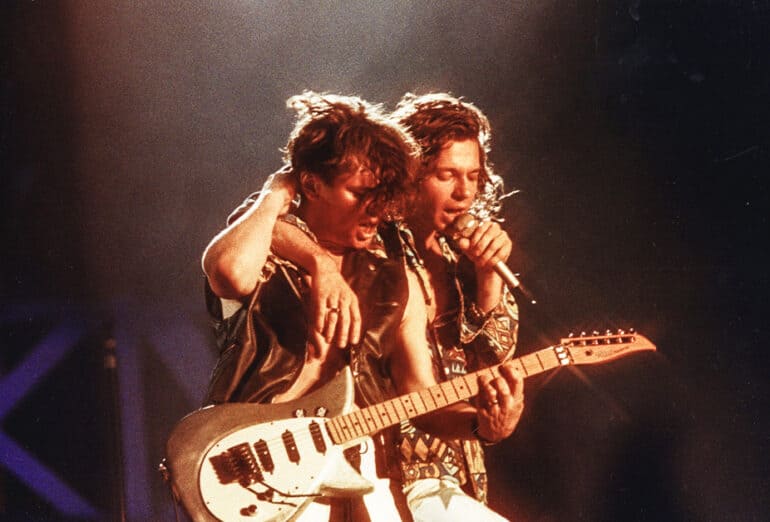INXS, the renowned Australian rock band, delivered an unforgettable performance at Wembley Stadium in July 1991, captivating nearly 80,000 fans. However, behind the scenes, the journey to Wembley was a bumpy one. It took time for INXS to gain popularity in the UK, facing initial criticism from the British press and relatively modest chart success. Eventually, their perseverance paid off, and by 1991, they had achieved commercial success in the UK with their album X, and frontman Michael Hutchence had gained significant media attention through his relationship with pop star Kylie Minogue. In this article, we delve into the factors that played a role in INXS’s decision to forego any profits from their iconic Wembley gig.
The Struggle for Recognition
Five years prior to their triumphant Wembley Stadium gig, INXS had encountered challenges breaking into the UK music market. In July 1986, they performed at Wembley, but as a supporting act for Queen. Unfortunately, they received unfavorable reviews from the British press, and their breakthrough hit, “What You Need,” only managed to peak at No. 51 on the UK charts. The band’s popularity in other parts of the world did not immediately translate to success in the UK, leaving them with much work to do to win over British audiences.
The Slow Climb to Success
Even with their critically acclaimed album, “Kick,” it took time for INXS to charm the British audience fully. One of the album’s biggest hits, “Need You Tonight,” only reached No. 2 on the UK charts after being reissued a year following its initial release. The song’s eventual success helped boost INXS’s profile in the UK, but it was evident that establishing themselves in this market required careful planning and effort.
The Turning Point
By 1991, the tides had turned in INXS’s favor. Their album “X” had topped the UK charts, marking a significant achievement for the band. Additionally, the media frenzy surrounding lead singer Michael Hutchence’s relationship with Australian pop sensation Kylie Minogue added further fuel to INXS’s growing popularity in the UK.
Michael Hutchence and Kylie Minogue’s Unconventional Romance: Love, Music, and Artistic Evolution

The Decision Not to Profit from Wembley
Given the importance of the Wembley Stadium show for INXS’s UK career, the band faced a significant decision. While they had finally achieved success in the UK, they knew that maximizing their earnings from the gig would require careful consideration. Instead of cashing in on the potential financial windfall, INXS decided to forego any profits from the Wembley show.
The reasons behind this decision were multi-faceted. Firstly, the band wanted to give back to their fans, acknowledging their unwavering support throughout the years. By keeping ticket prices reasonable and avoiding excessive commercialization, INXS ensured that their loyal audience could attend the monumental show without breaking the bank.

Secondly, INXS saw the Wembley gig as an opportunity to solidify their reputation as a band dedicated to their art and passionate about delivering an unforgettable experience to their fans. By prioritizing the quality of the performance over financial gain, they hoped to leave a lasting impression on their British audience and secure their place in the UK music scene.
Lastly, INXS understood the long-term benefits of their decision. By sacrificing immediate profits, they demonstrated their commitment to building a strong and sustainable fan base in the UK. This strategy paid off in the years that followed, as INXS continued to enjoy success in the British music market.
TLDR
INXS’s iconic Wembley Stadium gig in July 1991 marked a turning point in their UK music career. After facing initial challenges and slow progress, the band had finally achieved commercial success in the country. Their decision to forgo any profits from the Wembley show was a testament to their dedication to their fans and their art. By putting their audience first and prioritizing the quality of their performance, INXS solidified their position in the UK music scene and secured a place in the hearts of British fans for years to come.
